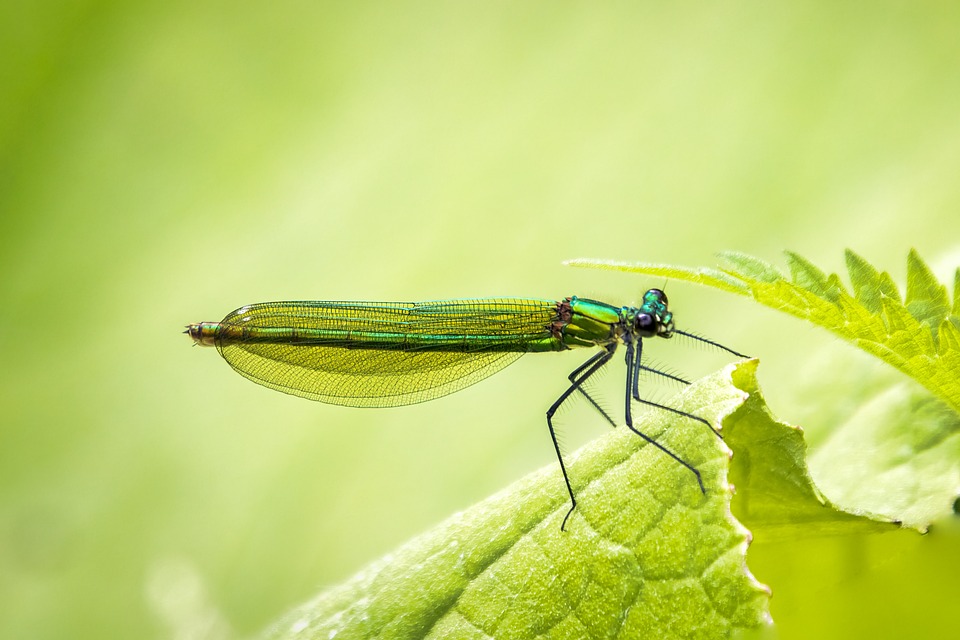As the warm months roll in, many of us find ourselves immersed in outdoor activities, relishing the sun’s rays and the beauty of nature. However, this joy can often be interrupted by those pesky insects that buzz, bite, and annoy. While chemical insect repellents may provide a quick fix, many people are now turning to natural alternatives that are not only effective but also safe for our skin and the environment. Let’s embark on a journey through some of the most popular natural insect repellent ingredients, exploring their origins, efficacy, and applications.
Citronella: The Classic Repellent
Citronella is perhaps one of the most well-known natural insect repellents. Extracted from the leaves of different species of lemongrass, this essential oil has been used for centuries, dating back to ancient practices in Asia. Citronella masks the scents that attract insects, particularly mosquitoes.
Widely used in candles, sprays, and lotions, citronella is a staple for outdoor gatherings. While its fragrance is pleasing to humans, it effectively repels unwanted pests, making it a favorite for summer barbecues. However, it’s important to note that its effects may not last long, requiring frequent reapplication for continued protection.
Lavender: The Soothing Scent
Lavender is cherished not just for its alluring aroma and calming properties but also for its insect-repellent capabilities. The oil derived from lavender plants contains compounds such as linalool and linalyl acetate, which are toxic to many insects, including mosquitoes and flies.
Using lavender essential oil in diffusers or as part of a homemade spray can help keep insects at bay while imparting a soothing scent that promotes relaxation. Lavender sachets can also be placed around the home to deter moths and other pests.
Eucalyptus: Invigorating Protection
Eucalyptus oil, specifically lemon eucalyptus oil, has gained recognition for its potency as a natural insect repellent. Research by the Centers for Disease Control and Prevention (CDC) has shown that oil of lemon eucalyptus can be as effective as DEET, a common synthetic repellent.
This oil, derived from the leaves of the eucalyptus tree, contains compounds like p-menthane-3,8-diol (PMD), which research suggests effectively wards off mosquitoes. Its invigorating scent makes it a favored choice for individuals seeking both protection and a refreshing fragrance.
Neem: The Versatile Wonder
Often referred to as the “village pharmacy” in India, neem has been revered for its various medicinal properties for centuries. Extracts from the seeds, leaves, and bark of the neem tree are known for their antibacterial, antifungal, and insecticidal properties.
Neem oil works by disrupting the life cycle of insects, making it effective in repelling not just mosquitoes but also a variety of garden pests. It is commonly used in organic gardening as a pesticide and can be diluted and applied to the skin as a natural repellent. Its bitter taste and smell deter not only insects but also animals, making it a versatile ally in maintaining a pest-free environment.
Peppermint: The Refreshing Barrier
Peppermint oil’s invigorating and refreshing fragrance is just one of its appealing qualities. Like lavender, it contains compounds that are harmful to many insects. Its main components – menthol and menthone – not only repel mosquitoes but also other pests such as ants and spiders.
In addition to being a delightful scent to humans, using peppermint oil in combination with other natural oils can increase the repellency of homemade formulations. Whether it’s added to a spray or used in candles, peppermint brings a fresh twist to natural pest control.
Conclusion: A Natural Approach to Insect Repellency
The journey through natural insect repellent ingredients shows us the richness of botanical resources available for safe and effective pest control. From the classic citronella and soothing lavender to the potent eucalyptus and versatile neem, there’s a wealth of options for those looking to protect themselves from insects without relying on synthetic chemicals.
As more people lean towards sustainable and natural living, these ingredients not only offer a way to enjoy outdoor activities without the worry of insect bites but also promote a more responsible approach to environmental protection. Whether you choose to create your own blends or purchase pre-made natural repellents, embracing these natural remedies can enhance your outdoor experience while ensuring that our ecosystems remain intact. So next time you gear up for a day in the sun, consider reaching for a natural insect repellent – your skin, the environment, and the insects will thank you!
